blog title

test
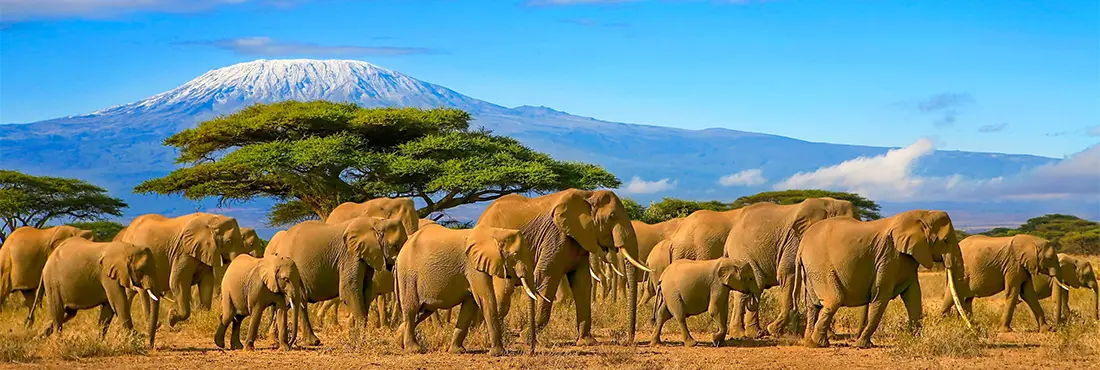
An African safari is a bucket list trip for many – after all, where else can you enjoy breathtaking sunsets over rolling savannas, friendly hospitality, and close proximity to some of the largest – and most endangered - animals in their natural habitats, in the world?
Whether you’re planning on booking an African safari as a family, couple, or group of friends, make sure you have a read of our guide, where we cover the different countries to visit, the best time to go, things to consider, what to pack, and vaccinations you’ll need.
So, read on to help find the perfect destination for you, and don’t forget to book your African safari trip with DW Travel!
Best places to go
There are lots of options when it comes to booking a safari in Africa, with some countries famed worldwide for their safaris, and others up-and-coming. Here’s our pick of six of the best.
South Africa
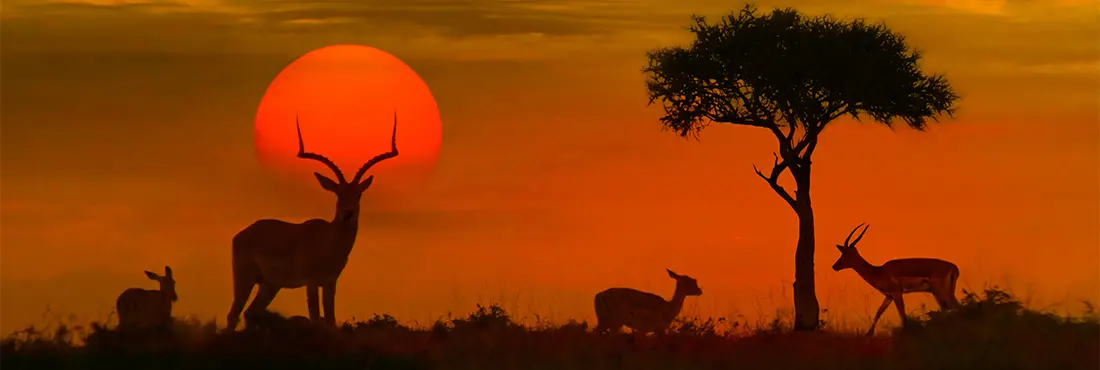
More than one-third of South Africa is covered in savannas, and it’s known for its variety of safaris – whether you’re looking for luxury lodges or no-frills walking trips.
Some of the most popular safaris here include Kruger National Park, which is one of the largest game reserves in all of Africa, spanning almost two million hectares. Just a four-hour drive from Johannesburg, Kruger is home to the big five (lions, leopards, buffalos, rhinos, and elephants). However, you might also get to see giraffes, warthogs, and hyenas.
Alternatively, if you’d prefer to fly into Cape Town, you can visit Aquila Game Reserve instead, which is a two-hour drive away. The big five reside here too, in addition to springboks, which are South Africa’s national animal – and you can’t see them at Kruger!
Tanzania
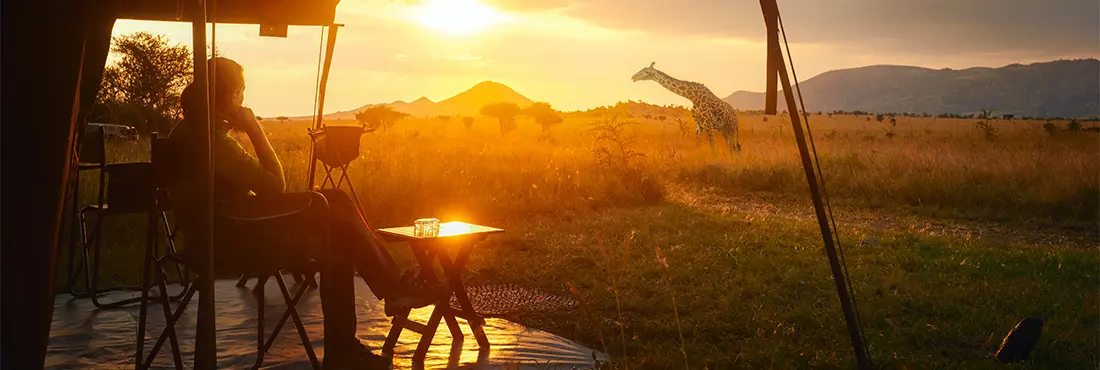
Another classic safari destination, and hugely popular for good reason; Tanzania is a great alternative to South Africa. It’s most known for being a destination for wildebeest when they migrate, with more than two million gazelles, zebras, and wildebeests heading here.
The main safari destination in Tanzania is Serengeti, which is home to the big five, as well as many big cats. Choose from four main regions for your safari: Seronera Valley, Lobo, the Southern Plains, and the Western Corridor.
If you’d prefer to escape the crowds, then head to the Mahale Mountains National Park. It’s not easily accessible, as you can only reach them by boat or plane, but you’ll be rewarded with vast forests and beautiful lakeside beaches. Mahale Mountains is home to the biggest population of eastern chimpanzees, which you can discover on small walking tours, and you might also be lucky enough to see blue monkeys, lions, and elephants.
Kenya
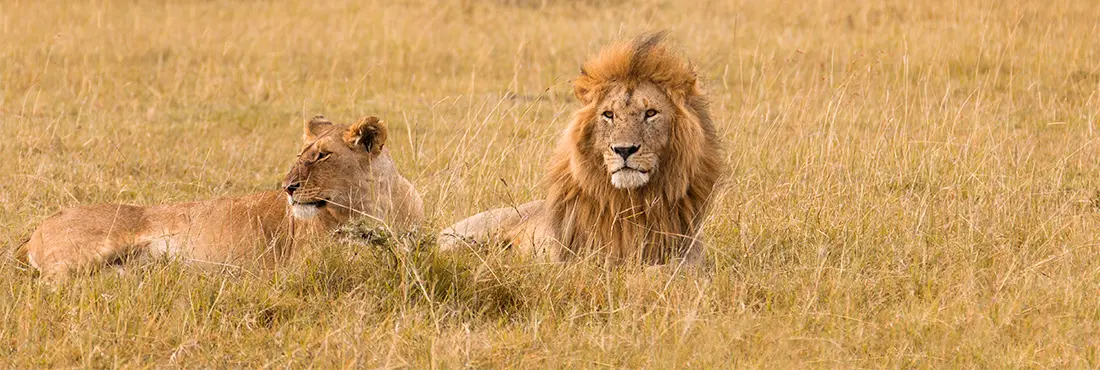
The birthplace of safari, Kenya continues to be one of the most popular places to go on safari, with the Masai Mara perhaps the most iconic destination in the world. In the summer, you’ll see the great migration of wildebeest along the river; and you might even be lucky enough to peek at cheetahs, leopards, hippos and more across the grasslands, forests, and savannas.
Lake Nakuru is also worth a visit, which is home to hundreds of flamingos, as well as more than 300 different types of birds. It’s also home to black and white rhinos, as well as leopards and lions.
Uganda
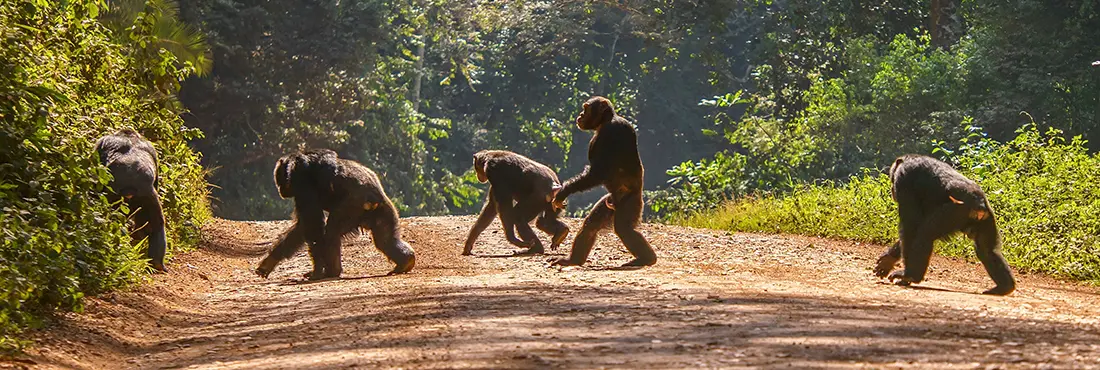
Uganda is growing in popularity as a safari destination, with Bwindi Impenetrable National Park home to one of only two populations of mountain gorillas in the world. The backdrop here is absolutely stunning, with the dramatic Virunga Mountains looming 4,500 metres high, in addition to rolling hills covered in vast forest.
Alternatively, you could go on a safari in Murchison Falls National Park in western Uganda, which is home to crocodiles, hippos, big cats, buffalos, and more. 300km away from the capital, Kampala, this reserve is best known for the Victoria Nile, which drops a huge 45 metres.
Botswana
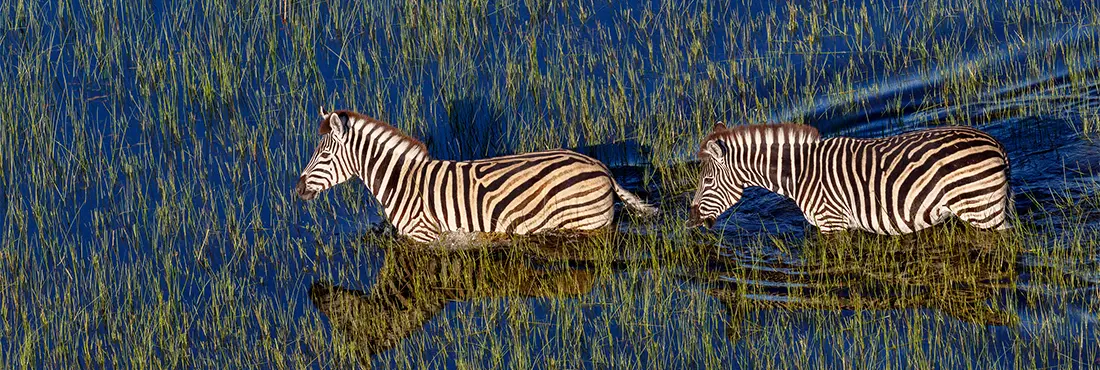
Another up-and-coming destination for a safari in Botswana, with the Okavango Delta perhaps the most well-known area. The flood waters from Angola transform the area into a wetland paradise, and you can get close to hippos and elephants on one of the boat safaris across the river Delta.
If you love elephants, then you might want to consider Chobe, which is known for its huge number of elephant herds – up to 80,000 during the dry season. Chobe is also home to lions and buffalos, and it’s just an hour’s drive from Victoria Falls, so you can easily visit that, too.
Zimbabwe
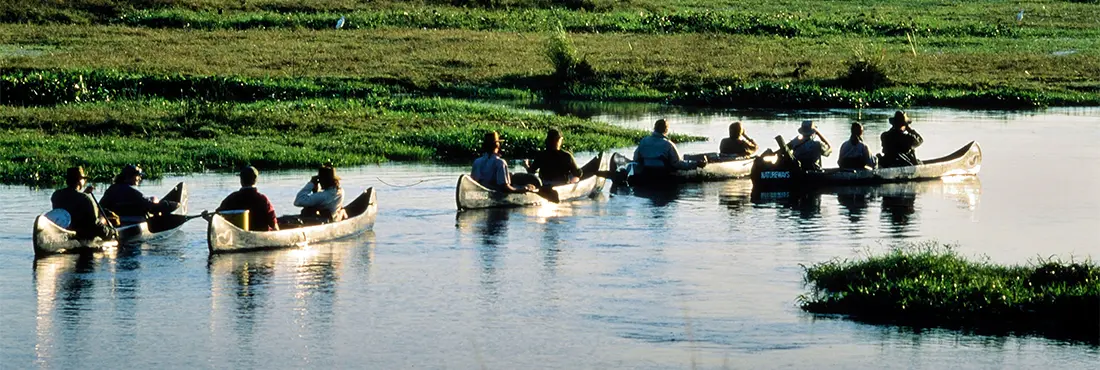
Finally, another destination to consider when booking a safari is Zimbabwe. Nestled in between Botswana, South Africa, Zambia, and Mozambique, Hwange National Park is the biggest, spanning more than 5,850 square miles. There are between 45,000-60,000 elephants living here, as well as more than 400 different types of birds; and it’s also close to Victoria Falls.
Alternatively, if you’d prefer to go somewhere more off the beaten track, then you might want to look into Gonarezhou, which boasts the imposing backdrop of the red Chilojo Cliffs, which really come to life when the sun sets. It’s also referred to as “the place of elephants”, as it’s home to more than 11,500 of them.
When’s the best time to go?
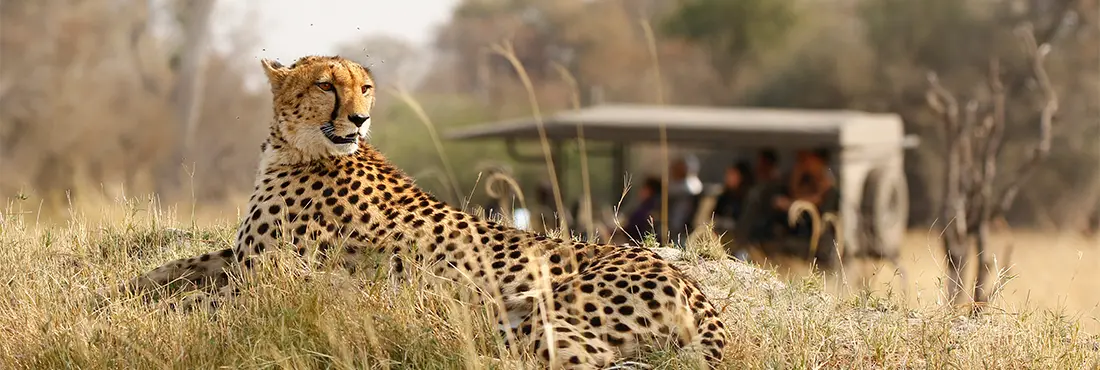
There are a few things to consider when picking the best time to go on safari. The great migration typically spans from July to October, when more than two million zebras, gazelles, and wildebeest migrate from Tanzania’s Serengeti to Kenya’s Masai Mara; as they face being hunted by predators, and have to cross crocodile-infested rivers along the way.
If you want to go gorilla trekking, then January and February in the low season is the best time; whereas if you’re in Tanzania and want to pair your trip with climbing Mount Kilimanjaro, then it’s best to go in September or October.
Ultimately, visiting in the high season (May – September) means you have the best chance of seeing a range of animals, and the weather will be dry. However, it’s more expensive, the parks will be at their most crowded, and you’ll want to book far in advance, to secure the accommodation you want.
Going on safari in the low season (October – April) is much cheaper, with the parks emptier, but the weather tends to be very hot and wet, and you have a lower chance of seeing animals – although you’ll find there are lots of baby animals nearby.
Things to consider when booking your African safari
With DW Travel, you can tailor your African safari trip to suit you, with the below just a few things to consider when booking.
Private vs group trips
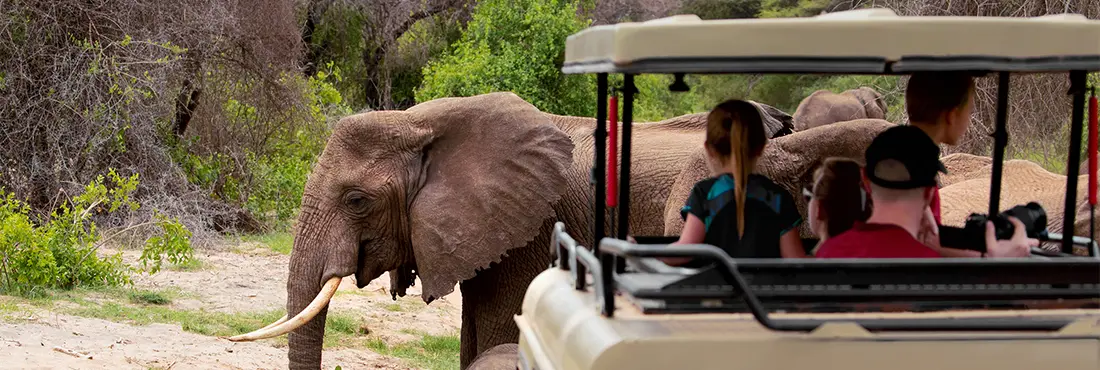
You have two options when booking a safari. A group safari means you’ll be travelling around with strangers, and it’s a great way to meet new people and make friends. However, you won’t be in control of the itinerary in the same way you would if you booked private.
On a private safari, you’ll be able to pick where to go, what time you want to go, what activities you want to take part in, and where you want to stay – and you can be flexible and change your plans at the last minute, if you want to. Private safari vehicles tend to be more comfortable and spacious too, as there are fewer people travelling together.
That being said, group safaris are a lot cheaper than private tours, so if you’re undecided between the two, we’d recommend checking the itinerary of the group safari you’re considering, to see if it includes everything you want to see and do, before making a decision.
Accommodation
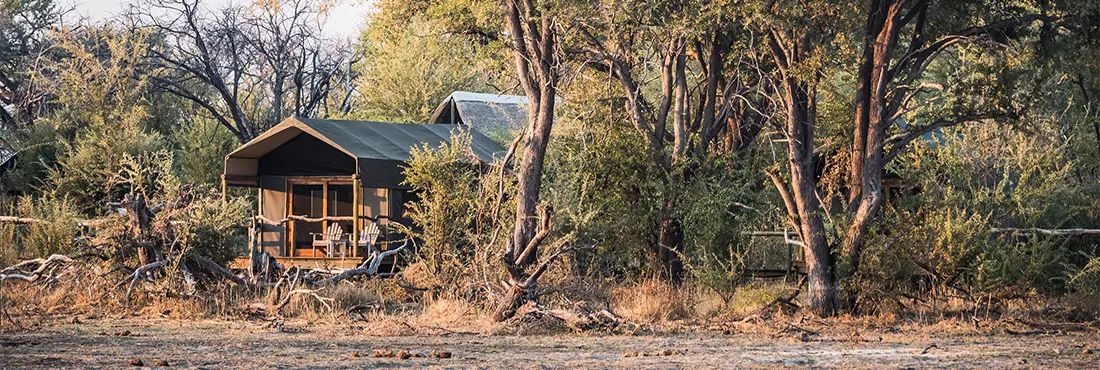
There are three different types of accommodation to consider when on safari:
Lodges
Permanent buildings made from stone and wood, they’re great if it’s your first time on safari, and you’re a bit nervous about sleeping so close to wild animals. Lodges are smaller than hotels, so offer a more intimate atmosphere, but they typically have the same facilities including ensuite bathrooms, restaurants, and pools.
Hotels
If you want your home comforts when on safari, then many of the reserves have nearby hotels. Luxury levels and amenities can vary drastically, so it’s always worth doing your research, but most operators will let you upgrade or downgrade, if you’d prefer.
Camping
If you want a more authentic experience, a mobile tent could be ideal, and are typically set up in more remote settings. You can get more luxurious options, but these tend to be classic safari-style tents set up in areas with no running water. If you’re a seasoned safari-goer, this can be ideal – with eating your meal under the stars one of the highlights.
Alternatively, if that sounds a bit too much, you can go to a tented safari camp where accommodation is big enough to walk around in, with actual furniture; with many of them having bathrooms and flushable loos.
Who you’re going with
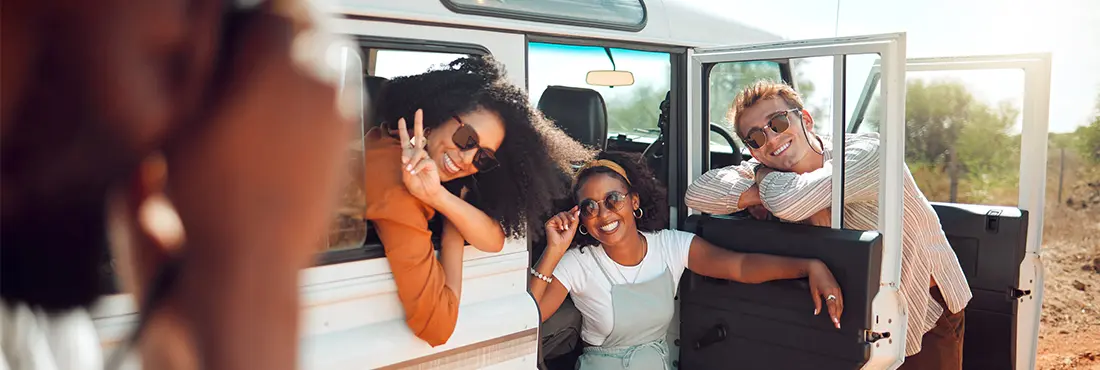
If you’re travelling with children, then you’ll need to bear in mind that it’s recommended that kids don’t go on safari until they’re at least eight. That being said, certain places will allow children from age six to take part, so make sure you read the terms and conditions before booking your trip.
One thing to keep in mind when travelling with children, is that travel times can be long if you’re on the road. Make sure you read our ‘How to get there section’ below, for more information on internal travel arrangements once you’ve touched down in Africa.
If you’re travelling as a family, then staying in accommodation that has facilities and nearby amenities is ideal for ease, whereas if you’re travelling as a couple, it’s more down to whether you want to book a luxury or authentic safari.
Do you want add-on activities?
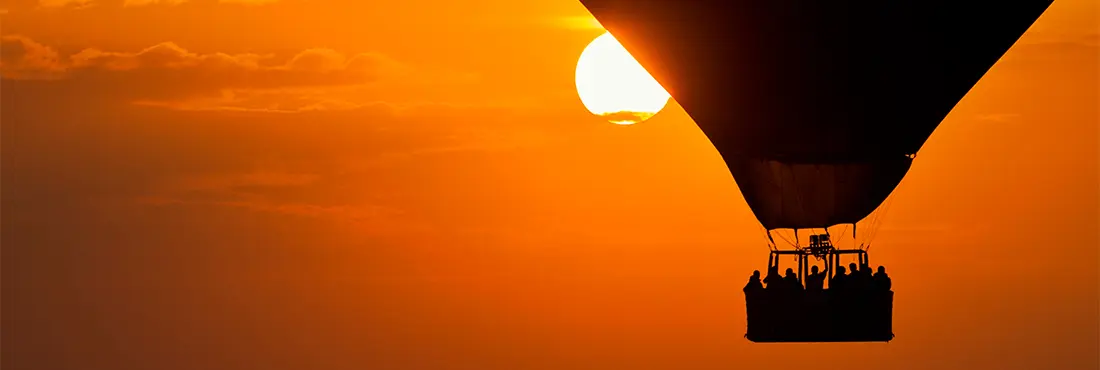
Travelling all the way to Africa, you’ll likely want to add on some additional activities to extend your safari trip. Tour providers will tend to offer add-ons that you can take part in, or you can book these separately yourself.
Things like hot air balloon rides over the national parks, horse-riding trips, or extra game drives in the early morning or evening are just a few examples of things you could book. Alternatively, you might want to fly off to a different destination and relax on a beach for a few days, with Mombasa in Kenya, and Zanzibar in Tanzania both popular choices.
How to get there
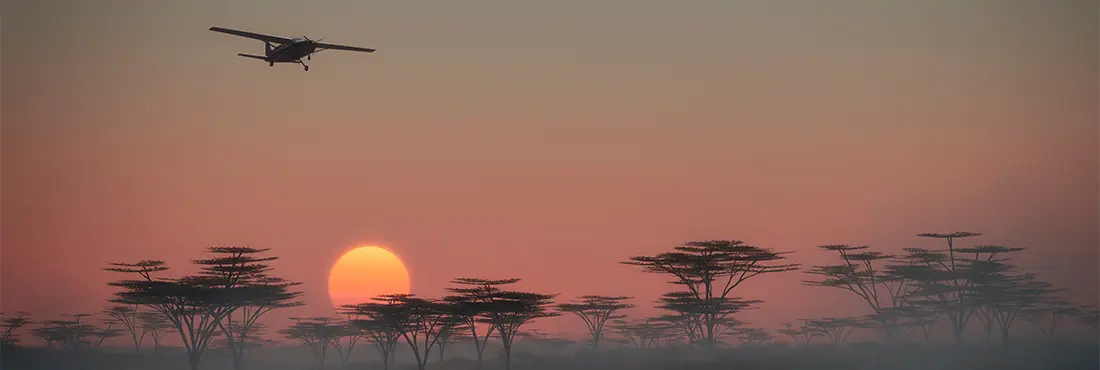
The final thing to consider is how you want to reach your safari once you’ve flown into your chosen country. The parks can be a long way from the main airports – for instance, Kruger National Park is almost four and a half hours from Johannesburg Airport, and to travel to Serengeti from Tanzania’s main airport (Dar Es Salaam), it’s a time-consuming 17 hours.
Many tour providers include shuttles from the airport, but you might want to consider looking at internal flights, so you can get as close to your chosen safari as possible, so you’re not wasting hours and hours in the car.
Final things to sort
Once you’ve booked your African safari trip, there are just a few final things to consider before you catch your flight.
Visas
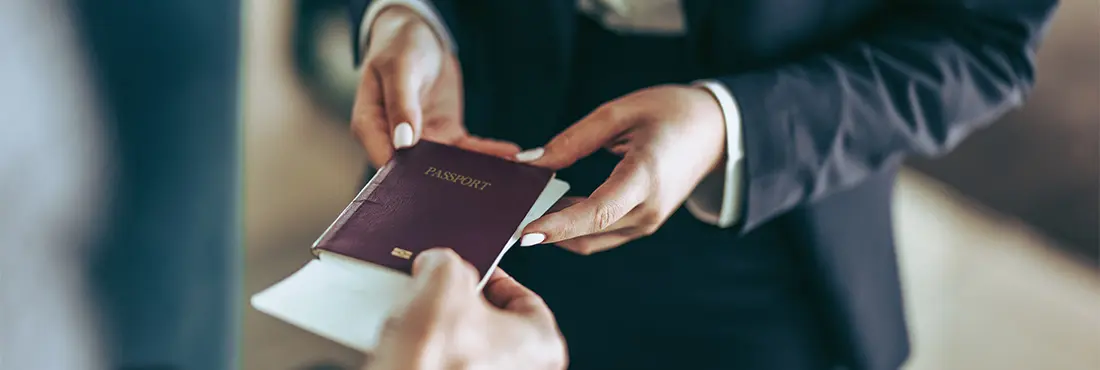
Whilst UAE citizens don’t need a visa for South Africa if you’re visiting for less than 90 days, you will need to apply for one if you’re visiting Zimbabwe, Tanzania, Botswana, Zimbabwe, and Uganda.
Each country has its own specific rules about how long visas last, how to apply for them, and how long in advance you need to sort them; so, before you book your safari holiday, we’d recommend you check the relevant country’s visa guidelines, so you can gather all of your documents you’ll need in advance. Contact our Visa Services team for more information.
Vaccinations

When travelling to Africa, there may be additional vaccinations you’ll need to get, so always seek advice from a medical professional regarding this. We’ve broken it down per destination, so you can see what you need:
South Africa
Advised (most important you get):
MMR
Diphtheria
Hepatitis A
Yellow Fever – if you’re travelling from a country with a risk of Yellow Fever transmission, or you’ve transited for more than 12 hours in a country that has a risk of Yellow Fever Transmission, you’re required to bring a certificate of proof of vaccine against it.
Recommended:
Hepatitis B
Rabies
Tetanus
Typhoid
Tanzania
Advised (most important you get):
MMR
Hepatitis A
Poliomyelitis
Tetanus
Yellow Fever – if you’re travelling from a country with a risk of Yellow Fever transmission, or you’ve transited for more than 12 hours in a country that has a risk of Yellow Fever Transmission, you’re required to bring a certificate of proof of vaccine against it.
Recommended:
Diphtheria
Hepatitis B
Meningococcal Meningitis
Rabies
Typhoid
Kenya
Advised (most important you get):
MMR
Diphtheria
Hepatitis A
Poliomyelitis
Tetanus
Yellow Fever
Recommended:
Meningococcal Meningitis
Rabies
Typhoid
For those at high risk:
Uganda
Advised (most important you get):
Recommended:
Hepatitis B
Meningococcal Meningitis
Rabies
Typhoid
For those at high risk:
Botswana
Advised (most important you get):
MMR
Hepatitis A
Poliomyelitis
Tetanus
Yellow Fever - if you’re travelling from a country with a risk of Yellow Fever transmission, or you’ve transited for more than 12 hours in a country that has a risk of Yellow Fever Transmission, you’re required to bring a certificate of proof of vaccine against it.
Recommended:
Zimbabwe
Advised (most important you get):
MMR
Hepatitis A
Poliomyelitis
Tetanus
Yellow Fever - if you’re travelling from a country with a risk of Yellow Fever transmission, or you’ve transited for more than 12 hours in a country that has a risk of Yellow Fever Transmission, you’re required to bring a certificate of proof of vaccine against it.
Recommended:
Diphtheria
Hepatitis B
Rabies
Typhoid
For those at high risk:
Check with your GP how many vaccines you’ll need for each course, and how far in advance you’ll need to start them. You should also check in with your GP about malaria, as some of these countries have a bigger risk than others, and they’ll be able to advise you on whether you’ll need to take antimalarial tablets.
What to pack for your safari
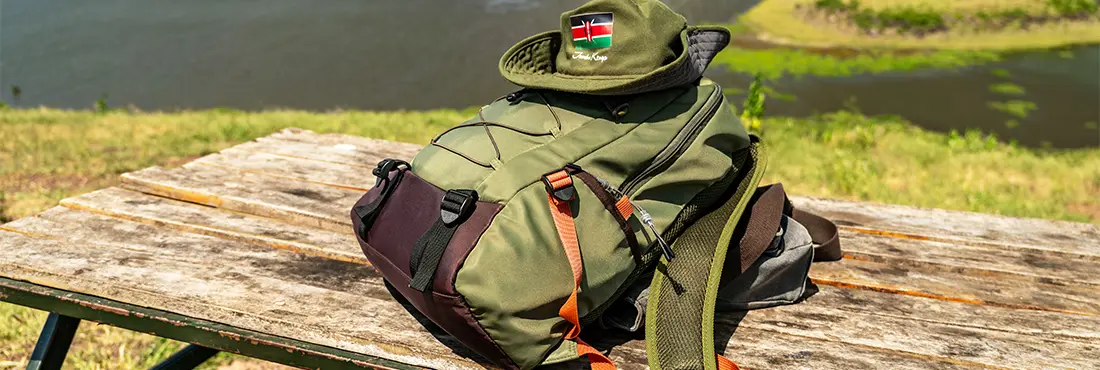
With long travel journeys and different types of transport, it’s advised you pack your luggage in a soft suitcase or duffel bag, and avoid hard shell cases altogether.
These are the essentials:
Clothes
Comfort is crucial, and with temperatures typically low first thing in the morning and after sunset, you’ll want to bring lots of lightweight layers, so you’ll never be too hot or too cold.
Pack lightweight trousers, tracksuit bottoms, yoga pants and cargos, alongside tops you can easily layer, in addition to a light jacket, fleece, hat, and scarf.
Other things to pack include:
Hiking shoes – ideal if you’ll be spending a lot of time trekking, and they can protect your ankles against bug bites.
Sandals or flip flops for when you’re at your accommodation and it’s hot.
Extra underwear and socks, as you might not be able to do your laundry, depending on where you’re staying.
Polarised sunglasses.
Opt for clothes in neutral, muted shades like cream, black, grey, and khaki, as they won’t absorb the heat of the sun. You’ll want to avoid dark colours, shades of blue, and metallic fabrics, as tsetse flies are attracted to them; and camouflage, as this can be associated with the military. You should also avoid wearing brightly coloured clothing, as it can draw attention to you, and cause the animals to run away. Ultimately, if you want to see the natural behaviour of the animals, you need to remain unseen. We’d also advise not wearing trainers when on safari, as they can get ruined during the rainy season.
Toiletries
In addition to the obvious essentials, it’s worth packing the following when on safari:
Minimum 30% DEET bug spray
Factor 50 sunscreen
Rehydration salts, for if you fall ill
Antihistamines, to counteract bug bites
Motion sickness tablets
Contact solution and extra lenses if you wear them, as the dust can irritate your eyes
Handy extras
So, now you know everything you could possibly need to, it’s time to book your African safari trip with us! Browse our tours and packages to find the ideal trip for you; and if you’d like to tag on a relaxing beach break at the end, why not book one of our Maldives tour packages too?
Alternatively, for more holiday destination inspiration, head on over to our blog to discover our top things to do in Tbilisi, or our family travel tips, which guarantees a stress-free trip.

